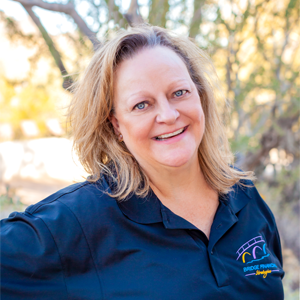Life Spans: Interesting Info You Can Read Over a Single Cup of Coffee!
-

Julie Kern, CPA, CFP®, CDFA®
In this issue:
New: Settlement Assurance Review
For every time you’ve been faced with a complex case—such as one with a lump-sum spousal-maintenance payout, or a complicated asset mix with hidden tax implications—and told your client, “You should talk to your tax or financial advisor,” I have a new service for them… and you.
It’s simple. When you and your client are considering a settlement, I can review it from a financial-expert perspective, for a nominal fee, and “bless it” (or not) before you go to court or mediation. The Settlement Assurance Review scrutinizes your client’s divorce settlement terms before finalization, providing:
- Equitability analysis: A detailed evaluation to ensure the proposed settlement terms are fair and well-balanced.
- Tax impact assessment: Identification and explanation of any potential negative tax implications.
- Risk mitigation review: Detection of any hidden financial risks or liabilities that could impact your client’s financial well-being, post-divorce.
During these reviews, I often discover hidden negative tax implications and other undesirable outcomes and risks that would be detrimental to your client. This can significantly reduce your liability exposure, while giving your client added confidence, and making you look even better in the process!
By partnering with us, you can confidently assure your clients that their financial interests are fully protected and their settlements optimized for both fairness and financial clarity.
Contact me and I can help you easily get your clients started with this.
I should be certified. Oh wait… I am.
If you’ve been reading these articles of mine, you may have detected a pattern. I’ll open with a problem or issue, and then, just before I dive into my take on the solution, I’ll say this same phrase, pretty much verbatim:
After all, I’m a CPA, a CERTIFIED FINANCIAL PLANNER® professional, and a Certified Divorce Financial Analyst® professional.
Let me stop right there. And dive right in. So you can better understand what each of these certifications means, what it took (and continues to take) to get me certified for each, and, most importantly, what this means to you and your practice.
My CDFA® certification
There are actually divorce lawyers out there who don’t know what a CDFA is, even though the name says it all: Certified Divorce Financial Analyst® professional. The program is administered by the IDFA—The Institute of Divorce Financial Analysts—and there are about 3,400 CDFAs in the United States. To earn this certification, you need a bachelor’s degree and at least three years’ experience in financial planning or family law (or five years, if you lack a degree). I was already a CFP (details in a minute) when I’d applied for my CDFA, so I already checked the “work experience” box.
Still, there’s a specialized training program and a four-hour exam you need to pass. There’s a code of ethics you must abide by, and 30 hours’ worth of continuing education every two years.
Let’s move on to the next one, which was even harder to earn…
My CFP® certification
CFP, as you probably know, stands for CERTIFIED FINANCIAL PLANNER® professional. Issued by the CFP Board, it requires a bachelor’s degree, as well as 6,000 hours’ worth of financial planning (or 4,000 hours of apprenticeship), all completed within ten years before, or five years after, the six-hour CFP exam. On and there’s specialized CFP coursework, too.
I easily satisfied the “experience” requirement when I applied for my CFP, because I was already a CPA at the time. (Detect a pattern here?)
Still, the CFP certification includes its own stringent code of ethics, and 30 hours’ worth of continuing education every two years.
My CPA certification
This is the big one. I’m a Certified Public Accountant. Every attorney knows what that means.
Earning it was a bear. You need 150 college credit-hours: effectively a bachelor’s plus a one-year master’s degree. You need to pass the CPA exam; when I took it, it was 1.5 days long. The CPA certification itself is issued by the Arizona State Board of Accountancy.
There’s 80 hours of bi-annual continuing education required, 40 of which must be tax-related. There are limits on self-study vs. live learning; the requirements are so dense that there’s a spreadsheet to capture it all. But of course: Accountants. Spreadsheets. Duh.
Why all of this helps you
Enough about me. Let’s talk about you and your affluent divorcing-women clients. I know these people; I work with them all the time.
And boy do they ask a lot of tax-related questions.
- “If I keep the house, what are the tax implications?”
- “What if I sell the house later? What would the tax implications be then?”
- “If I do Scenario A vs. Scenario B, would my taxes go up or down? Why?”
You’re an attorney. You do not want the liability of doing anything that could even be construed as “dispensing tax advice.” Which is why, when attorneys like you are faced with tricky tax-related property-division settlements, they call someone like me.
And guess what? They also get a CFP and a CDFA in the bargain.
Contact me today. Let me help you help your practice.
AFI service
Seeing how often improperly-completed AFIs can frustrate attorneys like you, I’ve created an all-new service: I’ll help your divorcing-women clients complete their AFI, within one week of getting the supporting documents (bank and credit-card statements, etc.). And I’ll do it for them for a flat fee of just $495.
So they—and you—will have a good, solid AFI that opposing counsel can’t poke holes in, for a flat fee, in fast time.
Contact me today to get started!





